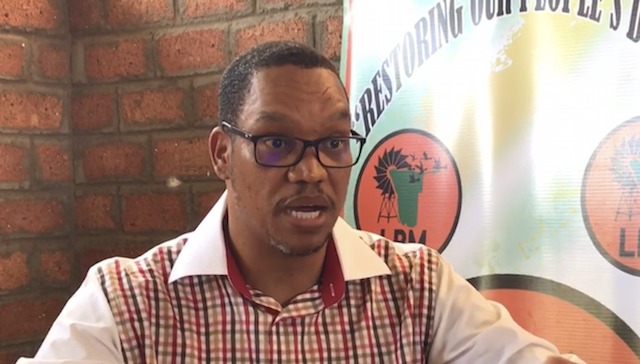LANDLESS People’s Movement (LPM) leader Bernadus Swartbooi on Saturday said Namibia’s education system has been destroyed to the point that it now drives a tribal agenda.
Swartbooi said this agenda can be applied to the “falsified glamorous performance” by rural schools in national examinations.
He said it does not make sense that a school in a rural area “that doesn’t have a full supply of electricity”, by far outperforms established and well-equipped schools in urban areas.
This can only be possible through a strategy to falsify facts allegedly being implemented by teachers who mark examinations papers at national level, he said.
“But when you go to the school and look at the teachers, and the conditions of the school and so on . . . the ones who are marking at the ministry of education are given instructions to mark in a particular way to produce the falsification of who is better, and therefore who should get access to education. Therefore education and access to education has become tribalised,” he said.
Swartbooi made these remarks at an LPM youth workshop in Windhoek.
He initially told the LPM youth that Namibia and South Africa were faced with challenges, including the lack of social consciousness and purpose among young people, because the two countries’ education systems have been depoliticised “so that the consciousness of the children becomes very docile or at best very limited”.
“Look at the history books of this country. It is nonsense they teach the children. It is a falsified history . . ,” he said.
He said Namibia’s education system was not truly nationalised because of the tribal agenda.
Executive director of education, arts and culture Sanet Steenkamp yesterday rubbished Swartbooi’s claims.
She said the credibility of the national examination was above board since it is independently “quality checked by Cambridge”.
According to her, an independent study conducted by the United Nations Educational, Scientific and Cultural Organisation showed that schools’ performance is based on various issues, such as leadership, and the interest of the community in their children’s education, among other things.
“The performance of schools is not determined by its resources, or access to electricity or teaching techniques, but the culture of the school. In a rural setting, the people take interest in the school and they set up the school together with the government. We should avoid politicising education,” Steenkamp said.
Stay informed with The Namibian – your source for credible journalism. Get in-depth reporting and opinions for
only N$85 a month. Invest in journalism, invest in democracy –
Subscribe Now!







